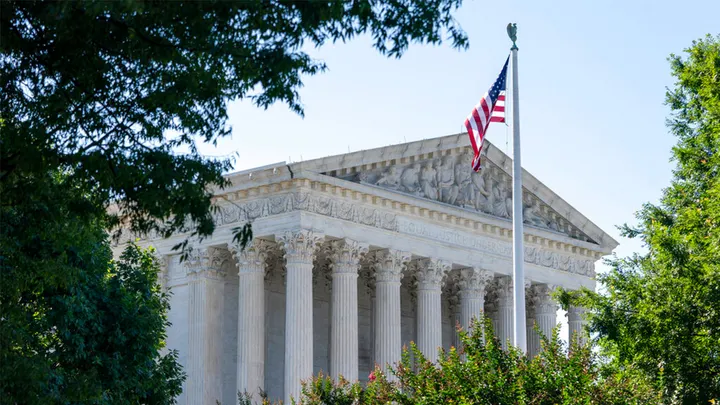In a recent landmark ruling, the Supreme Court dealt a blow to Republican-led states challenging the Biden administration’s immigration policy. The court’s decision, with an 8-1 majority, determined that the GOP states lacked standing to challenge the narrowing of federal immigration enforcement.
Justice Brett Kavanaugh, who authored the majority opinion in U.S. v Texas, emphasized the unusual nature of the lawsuit brought by the states. He noted that the states sought to compel the Executive Branch to change its arrest policies, a type of lawsuit that federal courts traditionally have not entertained.
The case centered around the Department of Homeland Security’s issuance of new enforcement guidelines. Initially, the department had attempted to impose a 30-day moratorium on ICE deportations. However, it later provided guidance that limited ICE agents to focusing on recent border crossers, threats to public safety, and national security threats.
DHS Secretary Alejandro Mayorkas defended the policy by stating that the mere fact of being a removable noncitizen should not alone trigger an enforcement action. He emphasized the need to use discretion and target enforcement resources more effectively.
Critics of the policy argued that it represented a rollback of enforcement and border security measures, leading to a significant decline in ICE deportations. Data from FY 2021 revealed that of the 74,082 arrests made, only 47,755 occurred after the policy’s implementation on February 18.
Texas and Louisiana challenged the legality of the guidelines, asserting that they violated the Administrative Procedure Act and would impose substantial law enforcement costs and strain on social services. A district court agreed with the states and blocked the policy’s implementation.
However, the Supreme Court, in its ruling, disagreed with the states’ standing. The court clarified that while monetary costs could constitute an injury, it must also be “legally and judicially cognizable” to grant standing.
It made clear that states might have standing in cases where the Executive Branch entirely abandons its responsibilities, but not in this particular instance.
This decision underscores the importance of clearly defined roles and responsibilities between the federal government and individual states in immigration enforcement. It also highlights the need for a comprehensive and bipartisan approach to address the complexities of immigration reform.
We will continue to provide updates on this significant development. Stay informed for more details.
Source Fox News


